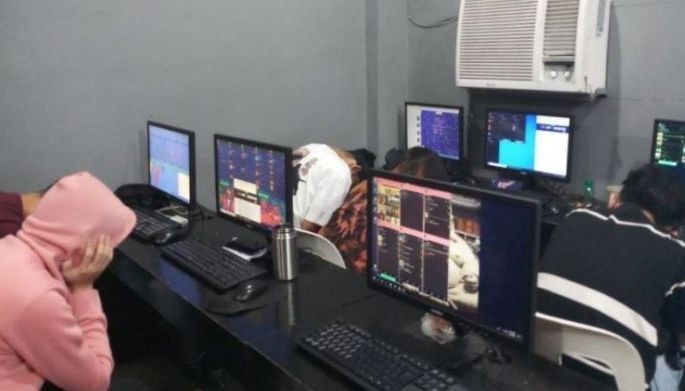DOJ tags Taguig, Iligan, and CDO as hotbeds for online child sexual abuse
By Raymund Antonio and Raymund Antonio
Taguig, Iligan, and Cagayan de Oro have the most cases of online child sexual abuse and exploitation of children, the Department of Justice (DOJ) said on Thursday, April 25.
 (Photo courtesy of Philippine National Police-Public Information Office)
(Photo courtesy of Philippine National Police-Public Information Office)
Lawyer Margarita Magsaysay, executive director of the DOJ Center for Anti-Online Child Sexual Abuse, said that child sexual abuse and exploitation materials (CSAEM) and online sexual abuse and exploitation of children (OSAEC) have become rampant in the three areas, where the targets are impoverished children.
“They target the vulnerable. So, who are the vulnerable, they are the children na who are in the poorer side of the country, who are in the rural areas,” she said during a Palace press briefing.
“Tina-target nila sila (They are being targeted), because they are easy targets because OSAEC is a financially-lucrative activity. So, kumakagat na ‘iyong mga victims, mga (the victims take the bait for around) P300, P200 for just showing CSAEM, showing nude pictures. That’s how bad it is,” the official explained.
The amount of money being spent on these exploitative and sexual materials have surprised even Magsaysay, who said the value has decreased.
“Pero mas madaming (There are more) CSAEM and it is because of that, kaya it’s becoming cheaper, it's becoming more accessible to perpetrators,” she stressed.
“It is very alarming because CSAEM has become more accessible,” the official also said.
DOJ Assistant Secretary Jose Dominic Clavano IV said that based on the information collected and research done by the National Coordinating Center, the identified cities and provinces are going to be their “target areas.”
“The policies obviously will revolve around the data that was collected,” he pointed out.
The buyers of these sexual materials are “older men from English-speaking and more developed and western countries,” the official said, but stressed that these “customers” are not necessarily pedophiles because they don’t have records of such “pedophile tendencies” in their own countries.
Noting that victims may be in the pre-adolescent or adolescent age, with the youngest at just three months old, Clavano lamented how “alarming” the situation has become because the Philippines has become “a favorite spot or a source for these western countries to abuse.”